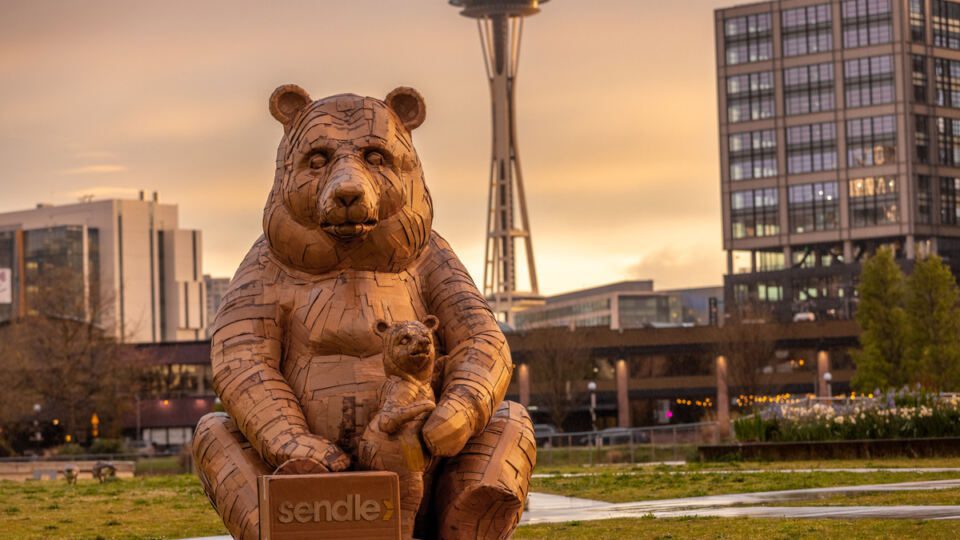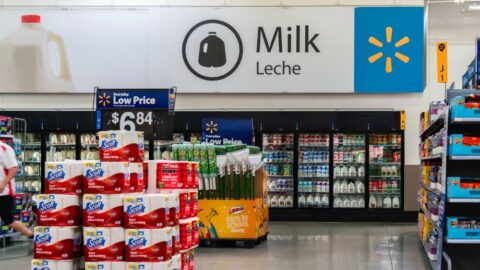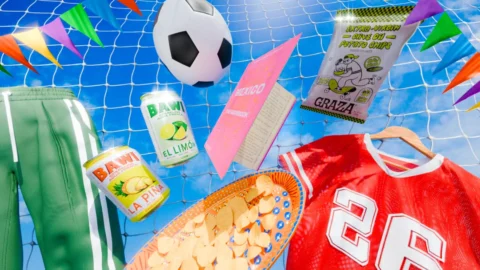Almost every retailer has a plan to green its operations, from sourcing more sustainable products to adopting solar power, and on Earth Day these efforts are brought to the forefront. At a time when 84% of companies have incorporated corporate social responsibility into their business strategies, it can be hard to develop programs that stand out as truly unique.
There’s nothing wrong with the tried and true, of course, but unique approaches to building internal sustainability and educating shoppers about its importance can serve as inspiration for retailers across the industry. Here are four companies — Sendle, Carter’s, Fossil and Walmart — that stand out with a combination of creativity, comprehensiveness and vision.
Sendle: Visualizing the Impact of Last Mile Delivery Through Art — a Big Cardboard Bear
Sendle is a solution provider dedicated to sustainability year-round. The service helps small retailers reduce the carbon footprint of their deliveries to net zero by first, calculating the highest amount of carbon that could be generated by any given package send, then taking steps to mitigate the impact. Sendle integrates retailer’s deliveries into carriers’ existing orders to prevent the need for extra trips, then offsets the remaining impact through green partnerships like restoring rainforest habitats and supporting a bird sanctuary in South Carolina through its partner, South Pole.
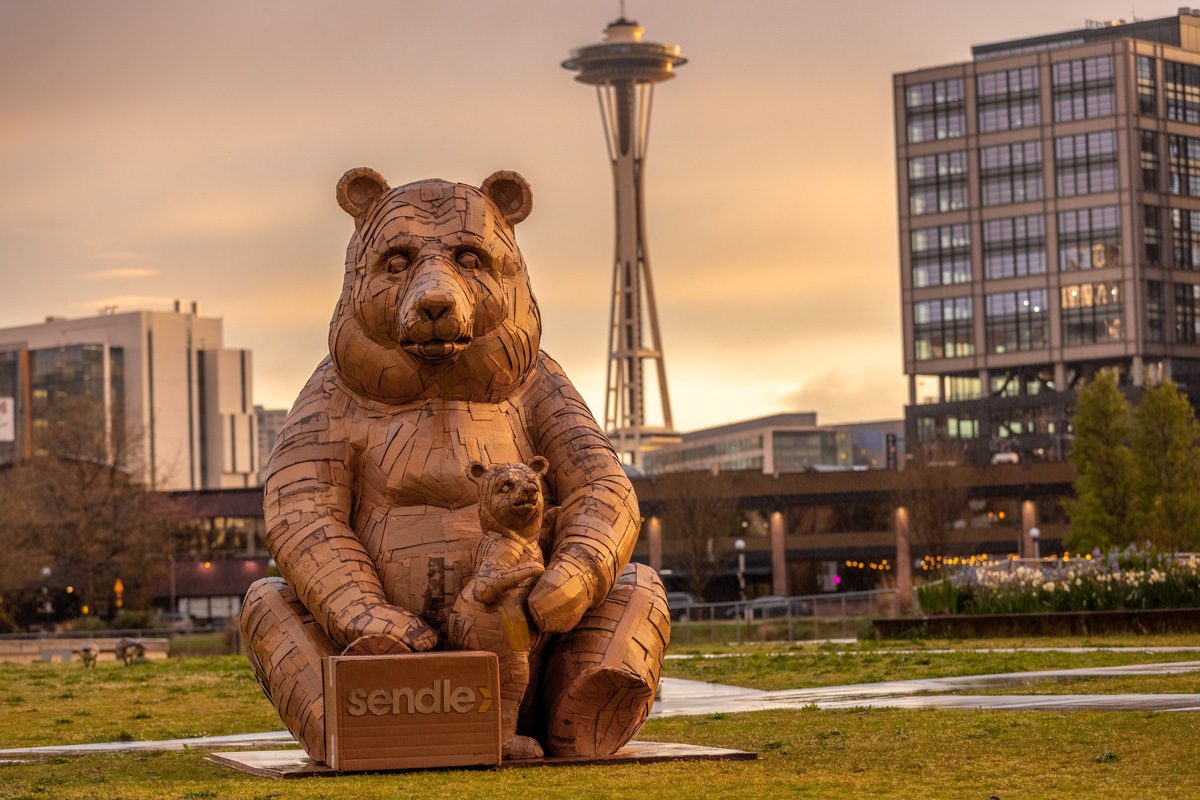
Approximately 165 billion packages are sent across the U.S. every year, and Sendle wanted to draw attention to this fact for Earth Day. This resulted in the company partnering with Canadian artist Laurence Vallières to host a special installation at Lake Union Park in Seattle: a 10-foot grizzly bear made from recycled cardboard boxes.
“The starting kernel for this campaign was that people had been on autopilot with online shopping since the pandemic started,” said Veena Harbaugh, Director Of Sustainability at Sendle in an interview with Retail TouchPoints. “These cardboard boxes are piling up in people’s homes, and we wanted to create a place where they can have a moment of awareness that this doesn’t just magically arrive at your door. We just wanted to make the connection between online shopping habits, the cardboard used and the invisible carbon impact that people don’t see, really, really clear.”
Both the bear and the city were chosen for how they symbolize the last mile’s environmental impact. The grizzly bear is endangered, with only 1,500 left in the U.S. outside of Alaska due to habitat loss and the changing climate, while Seattle is an ecommerce and logistics hub that plays a large role in how packages are sent across the country.
Sendle holds itself to the same environmental standards it helps retailers achieve, and the company is aiming to achieve a net zero environmental impact across all operations by 2030. Efforts like this, along with educating consumers, will be key to building a greener future.
“What we’ve seen is that there’s this growing demand for sustainability among consumers but so far it’s been hyper-focused on product level sustainability and ingredients, with a little bit more digging into where things are made,” said Harbaugh. “Consumers don’t fully know that carbon neutral delivery is an option.”
Once the exhibition closes, the sculpture will be broken down and the material recycled again by Republic Services Cardboard Recycling Center in Seattle.
Fossil: Saving Plastic From a Watery Grave and Exploring New Materials
While upcycling is an ongoing trend for sustainability-focused retailers, Fossilis taking the concept to the next level by giving a completely new life to waste plastics. The #tide ocean material line features two solar watches made from ocean-bound materials that utilize rechargeable batteries to keep even more waste out of landfills.
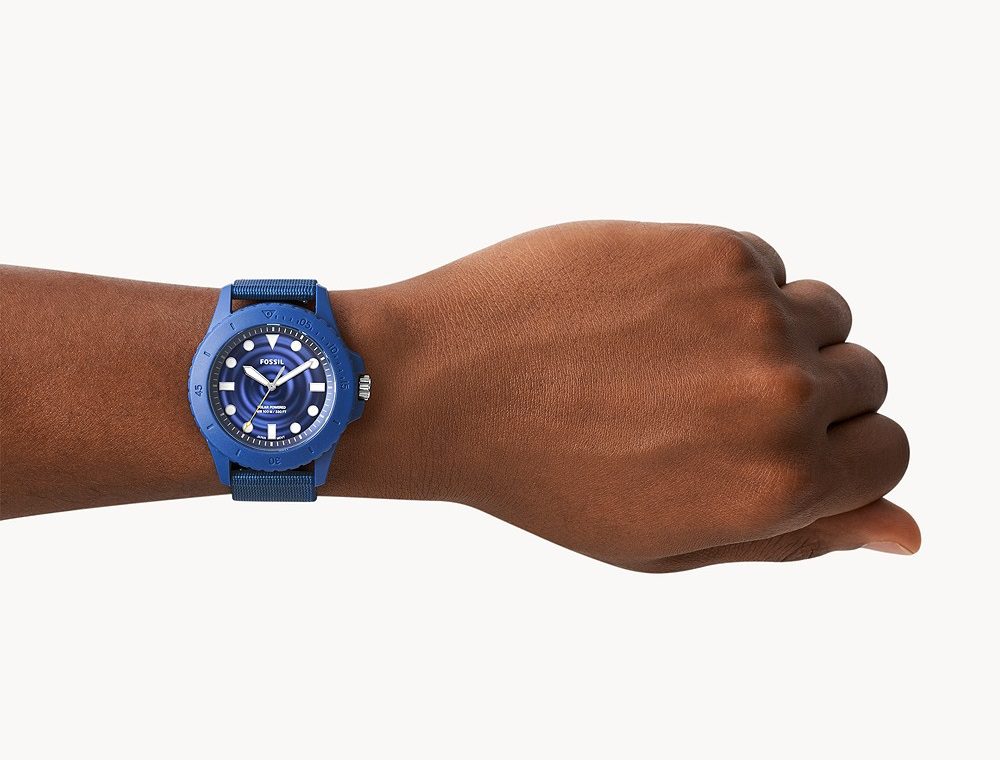
“#tide ocean material upcycles ocean-bound plastic waste into a premium second-life raw material,” said a Fossil spokesperson in an interview with Retail TouchPoints. “The material originates as ocean-bound plastics that are collected and transformed, in part by renewable energy, into #tide granules. These are then repurposed into durable plastic reinforced with natural fiber and used to manufacture components of these solar-powered FB-01 watches.”
All-natural renewable materials also play a role in Fossil’s efforts. The Joshua Cactus Leather collection features wallets and purses made with material developed from organically grown cactus leaves, in partnership with Desserto. Additionally, the items use REPREVE lining made from 100% recycled materials. The cactus plants only require rainwater for their growth, and even the process of creating the leather is green.
“Once harvested, the leaves are dried in the sun for three to six days, which removes the need for any additional energy source for the drying process,” said Fossil. “Not only is this an energy-efficient processing technique, but no herbicides, pesticides or irrigation systems are used in the production of the cactus. Additionally, each cactus’ trunk is left intact to enable repeat harvesting, as the leaves regenerate every six to eight months.”
The latest efforts build on Fossil’s Make Time For Good initiative, which launched in 2019 with the goal of developing a more sustainable future. Both the product and design teams have been working to grow the brand’s assortment of eco-friendly materials and partners.
Carter’s: Building a Cleaner Future for its Most Important Customers — Children
The biggest beneficiary of environmental causes are the children who will inherit the results of our actions. This is why Carter’s has adopted the Raise the Future environmental, social and corporate governance strategy to guide its development across multiple initiatives — including product tags, a new sustainable product line and a product recycling program.
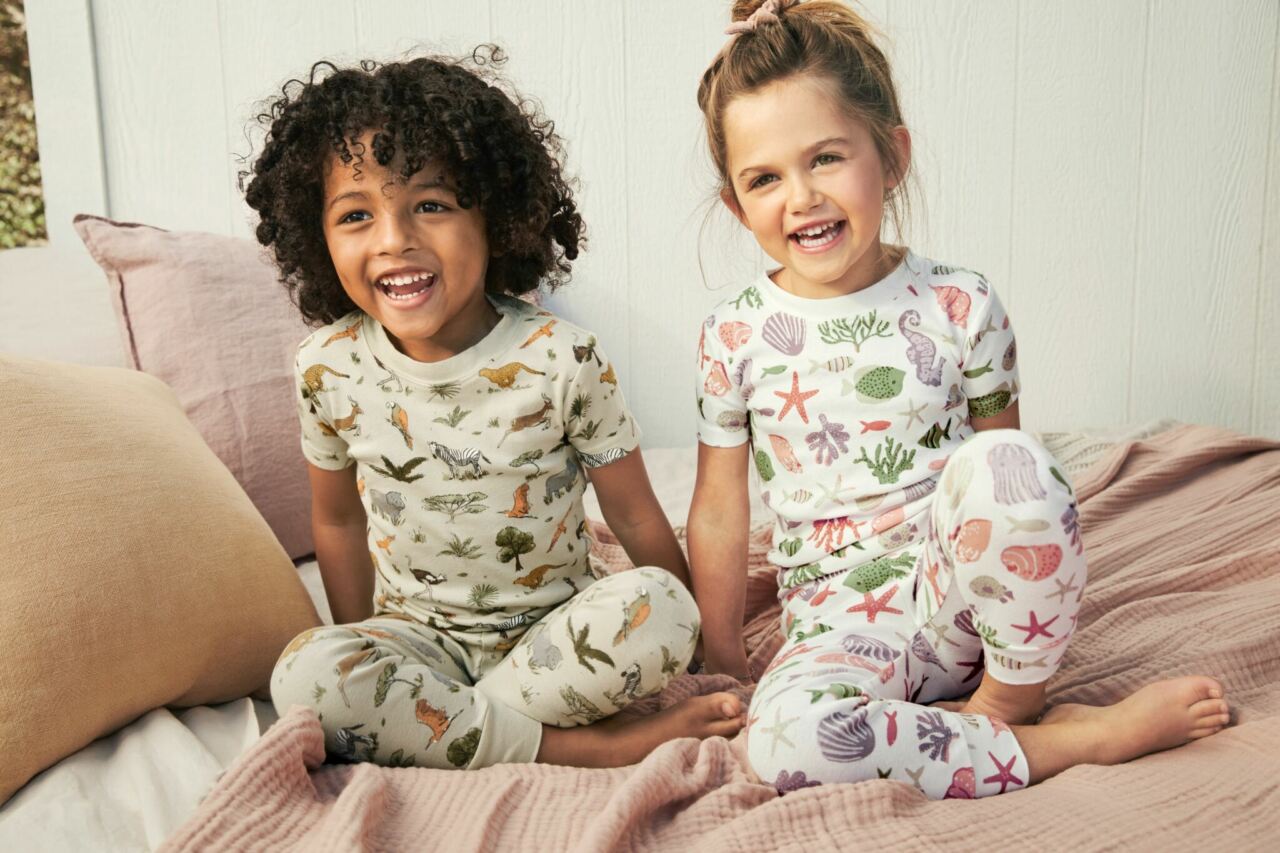
“Carter’s purpose is to inspire generations raising the future and create a world where all families with young children — including future generations — can grow and thrive,” said Tony Robinson, SVP, Corporate Social Responsibility at Carter’s in an interview with Retail TouchPoints. “Because of that perspective, our family of brands is committed to doing our part to create a better planet for this and future generations of kids.”
One of the key elements of the ESG strategy is helping shoppers stay informed, which Carter’s is achieving with new labeling and tags that clearly identify sustainable products. The icons appear at multiple consumer touch points and note which items are OEKO-TEX Certified, GOTS certified organic, made of recycled materials (Sherpa and Poly) or are part of the “Heirloom Collection” of Carter’s most durable and timeless silhouettes.
The new Little Planet brand of sustainable products can be found in 90 stores and will expand to 200 in 2022. The line also is expanding its selection to include toddler sizing and additional categories such as bedding, swimwear and shoes made from recycled materials. Additionally, Little Planet uses recyclable cardboard hangers and is sold in 100% recyclable poly bags
Upcycling also is supported through KIDCYCLE, which lets families recycle old clothing in partnership with TerraCycle. In 2021, the KIDCYCLE program saved 8,300 pounds of materials from landfills. It will build on this success with pilots in 46 stores.
Carter’s commitment to future generations goes beyond sustainability: Carter’s Cares, a program that focuses on helping children in need with an emphasis on literacy in early childhood education, has committed to volunteer more than 200,000 hours and invest more than $50 million toward early childhood education by 2030. In 2021, the program affected two million lives with 17,000 volunteer hours and $10 million donated (in both cash and products) to organizations focused on improving the lives of children.
Walmart: Developing Sustainability by Connecting Suppliers and Vendors
Large retailers like Walmart often have ambitious mainstream sustainability goals, like the retailer’s commitment to reaching 100% recyclable, reusable or industrially compostable packaging by 2025. Where the retail giant is innovating is by bringing its smaller suppliers on board for the ride through the Circular Connector, an online tool designed to bridge the gap between companies searching for more sustainable packaging ideas and those that offer them.

“We want to make it easier for sourcing teams and brand companies to quickly find sustainable packaging solutions — enabling us all to move faster together on reducing waste from our communities, our oceans and our environment,” said Ashley C. Hall, Director of Strategic Programs at Walmart in a statement. “And as you know, Walmart is all about driving efficiencies. With the Circular Connector, we expect the journey to become easier for brands and innovators to identify and implement more sustainable packaging solutions.”
Walmart’s Recycling Playbook provides examples of materials that are difficult to recycle and which could disqualify innovations from inclusion in the Circular Connector. Items such as PVC, metallized films and biodegradable additives in petroleum-based plastics may have their uses in a greener future, but currently these materials aren’t compatible with Walmart’s vision for its own sustainability program.



